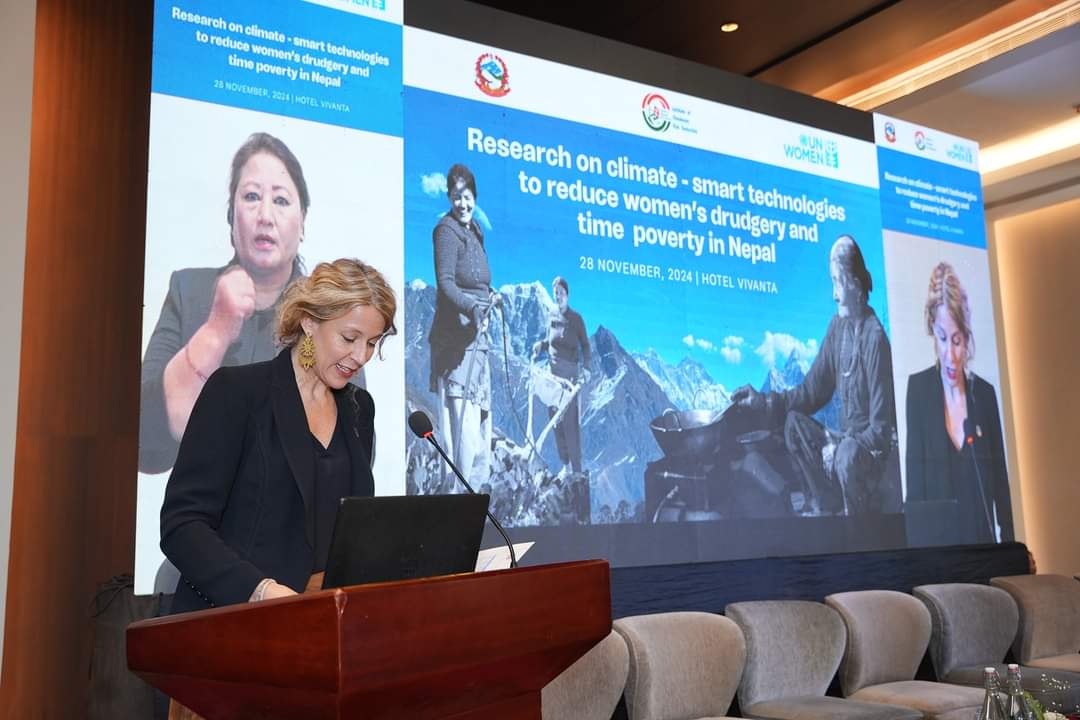Kathmandu, Nepal – A Validation Workshop on Research on Climate-Smart Technology to Reduce Women’s Drudgery and Time Poverty in Nepal was recently held, jointly organized by the Alternative Energy Promotion Centre (AEPC), UN Women Nepal, and the Institute of Himalayan Risk Reduction (IHRR). The workshop emphasized the transformative role of climate-smart technologies in alleviating women’s burdens and fostering gender equity. The research presented at the workshop revealed a high adoption rate of climate-smart technologies in Nepal, demonstrating their effectiveness in reducing women’s drudgery and time poverty. However, the findings underscored the importance of equitable access, gender-just financial mechanisms, and supportive policies to ensure the sustainability and inclusiveness of these technologies.
The research presented at the workshop revealed a high adoption rate of climate-smart technologies in Nepal, demonstrating their effectiveness in reducing women’s drudgery and time poverty. However, the findings underscored the importance of equitable access, gender-just financial mechanisms, and supportive policies to ensure the sustainability and inclusiveness of these technologies.
Patricia Fernandez-Pacheco, UN Women Nepal Country Representative, stressed the intersection of climate and gender justice, stating, “Climate justice is gender justice. Innovation in care infrastructure is key to building women’s climate resilience.”
Dr. Sindhu Prasad Dhungana, Joint Secretary of the Ministry of Forests and Environment (MoFE), highlighted the research's contribution to shaping ambitious gender-inclusive targets in Nepal’s third Nationally Determined Contributions (NDC). These targets align with global climate action frameworks while addressing local gender disparities.
Echoing the commitment to gender-responsive solutions, AEPC’s Executive Director, Nawa Raj Dhakal, reaffirmed the organization’s dedication to promoting and scaling climate-smart technologies that benefit women and marginalized communities.
This workshop is a significant step towards integrating gender equity into climate policies and fostering sustainable, inclusive development in Nepal. It calls for continued collaboration among stakeholders to ensure women’s empowerment and resilience in the face of climate challenges.